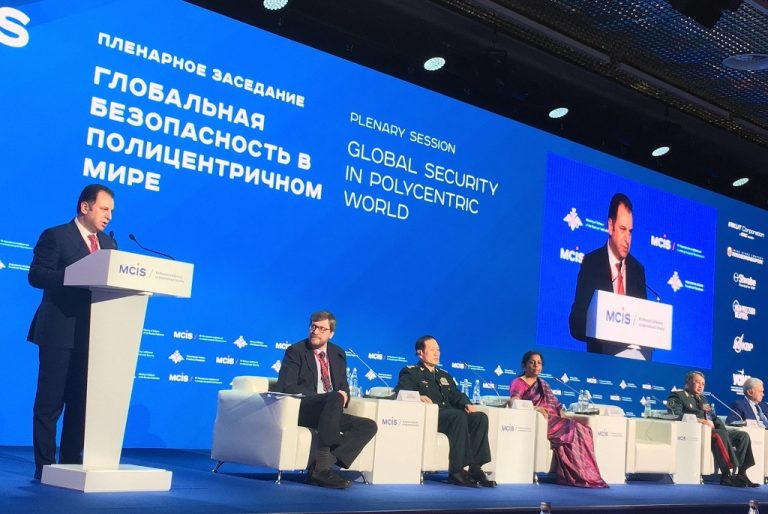“The main question is: should there be a new global scale agitation which can be compared with World War II in order to form a new, timely adequate response? I hope no”. This is a quotation from Armenian Defense Minister Vigen Sargsyan’s speech at the 7th Moscow International Security Conference. We all hope. However, there are no grounds for such optimism yet.
International structures (such as the United Nations) have not become a platform where rules of the game are developed at the international level, and there is a mechanism to impose those rules.
A simple example: let us suppose the issue of the Skripals is included in the agenda of the UN Security Council. It is clear that no resolution will be adopted: the sides will make mutual accusations, and everything will be over (the issue will not go beyond propaganda). But if hypothetically we suppose that by some miracle the UN Security Council will adopt a resolution, will Britain agree that it accused Russia by mistake, or will Russia confess that it made a mistake by poisoning Skripals.
If we approach the issue with strict legality, then the burden of proving the accusation falls on the prosecutor, but in this case, the important thing is not that, but the fact that the United Nations or any other international body does not provide any mechanism for resolving the problem. The poisoning of Skripals is not the most important issue of the world, just a little example.
The Armenian Defense Minister notes that “the main hopes of the League of Nations and the United Nations Organization connected with the preservation of lasting peace and preventing all wars from the very first day of their establishment have not been justified”. Thus, apparently, the League of Nations and the United Nations were not the structures that could handle that function. So, it can be assumed that they are based on incorrect, ineffective principles. I do not know what should be the new principles, but again I can assume that in the upcoming decades the concepts of “power” and “wealth” will be reinterpreted both internationally and locally.
In his speech, Vigen Sargsyan reminds: “Our policy is built not in the zone of manipulation of the confrontation of regional and global actors, but on the contrary, at the crossroad of their interests”. So far it is so. But who knows what will happen tomorrow?
Aram ABRAHAMYAN




















































